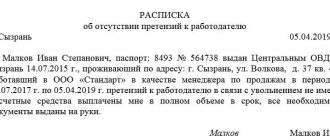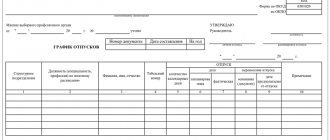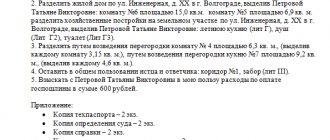Contracting is an agreement or contract that is used only in the agricultural sector. It is concluded between the manufacturer of agricultural products and their procurer, and is a type of purchase and sale transaction.
Under this agreement, the producer undertakes the obligation to transfer the agricultural products grown by him to the counterparty who purchases these products for processing or sale.
Agreement form
The agreement is concluded in writing. This is a must.
The procedure for drawing up, signing, and resolving disputes is the same as the supply agreement. If the participants, having agreed on all the general conditions regarding the supply and method of delivery of agricultural products, are committed to long-term cooperation, when drawing up an agreement, it is recommended to adhere to the design of the framework agreement (with open terms).
Subsequent transactions with specific conditions will be formalized in separate documents, which, in turn, will be considered integral parts of the framework agreement.
General provisions
A supply agreement is a type of purchase and sale agreement, but it does not cover any sale of goods, but only relationships that develop for business purposes or for other purposes, excluding personal, family, and home use of goods.
Supply and purchase and sale agreements are aimed at achieving the same result - the transfer of property into ownership (economic management or operational management) of the acquirer.
However, if, by virtue of a purchase and sale agreement, a finished item (goods) is sold and the execution of the agreement may coincide with the moment of its conclusion, then the supply agreement is concluded for a long period, since the goods that will be supplied have, as a rule, not yet been manufactured, it will be produced (procured) on the basis of the buyer’s order expressed in the contract. Therefore, the supply contract is associated with production (procurement of goods), with the rhythm of the production process. Delivery is carried out in batches within stipulated private deadlines. The quality of the product is determined by state standards or the terms of the contract. Payment is made gradually within stipulated terms (this allows, as it were, to spread the payment in installments and gradually use up the buyer’s working capital). Acceptance of goods under the terms of the contract may be conditioned by the availability of warehouse space of the purchaser.
The rules on sales contracts (for example, in international trade) may apply to a supply agreement, unless otherwise provided by law. The specifics of the supply of goods for government needs are determined by special legislation* and Art. 525 - 534 Civil Code of the Russian Federation.
* See: Law of the Russian Federation “On the supply of products and goods for state needs” dated May 29, 1992 // Gazette of the Congress of People's Deputies of the Russian Federation and the Supreme Council of the Russian Federation. 1992. No. 27. Art. 1558; Federal Law “On State Defense Order” of December 27, 1995 // Rossiyskaya Gazeta. 1996. January 4.
Relations under the supply agreement are regulated by the Civil Code of the Russian Federation.
A supply agreement is a legal form by which production needs for raw materials, supplies, equipment, fuel, etc. are met, and finished products are sold.
A contract for the supply of goods mediates economic ties to promote goods from the sphere of production to the sphere of circulation—to trade.
The supply agreement plays an important role in the implementation of supplies for government needs, since in it the parties express and specify their intention to fulfill it. With the help of an agreement, the state contract is detailed (according to specific deadlines, quantity, assortment and other indicators). Agreement by the parties on the terms of the contract can help correct the imbalance of the order with the actual needs of organizations for raw materials, materials, equipment, etc. Development of the terms of the contract between its participants helps to identify internal production reserves and eliminate non-production costs, improve quality.
By legal nature
The supply agreement is mutual, paid. Both counterparties are both creditors and debtors.
By method of conclusion
the contract is consensual, i.e. The rights and obligations of the parties arise at the moment of signing the text of the agreement.
Subject of the supply agreement
are means of production, consumer goods, extracted raw materials, manufactured materials, fuel. The goods, according to the supply agreement, are delivered in batches as they are manufactured, they are a product of mass or serial production and therefore homogeneous, produced, as a rule, in large quantities, determined by mass, measure, number, quantity. At the same time, the subject of a supply contract can also be individually defined things - experimental machines and equipment, as well as custom-made machines and equipment.
The supply contract is concluded for five years, one year or another period (short-term, seasonal, etc.), taking into account the production and delivery time of the goods, as well as for one-time deliveries. The parties have the right to extend the concluded agreement for a new period.
The execution of a supply contract usually occurs in parts within terms (periods) established taking into account the need for uninterrupted supply to the population and ensuring the rhythm of production. If the contract provides for the supply of homogeneous goods in separate batches, then in the absence of another agreement, delivery is carried out evenly (Article 508 of the Civil Code of the Russian Federation).
Parties to the agreement
Parties to the agreement: producers of agricultural products - this is the seller and the procurer of these products - who is also the buyer.
Sellers under such an agreement can be both commercial agricultural enterprises and farms, as well as private individuals growing agricultural products on their land plots.
Buyer is a person who makes purchases specifically for processing and subsequent sale. Otherwise, the relations of the counterparties will be governed by another agreement.
Subject of the agreement
The subject of the agreement is agricultural products directly in their pure (not industrially processed) form (grain, wool, etc.), and products that still need to be grown or produced. Thus, processed products (oil, juices) are not subject to sale under contract, but only under a supply agreement. Due to the fact that the process of growth and production often does not depend on the producer himself (weather, pests, floods), the amount of production is determined not in relation to numbers, but in two limiting parameters: the largest and the smallest.
Procedure for handling consumer complaints
The resource supply agreement must specify the procedure for the parties to deal with consumer complaints. The reasons why services of inadequate quality or in a smaller volume were provided during a certain period must be identified. The order in which these reasons must be established and recorded is also prescribed in the contract (clause 23 of the Russian Federation Regulations dated February 14, 2012 No. 124). RSO is responsible for the supply of resources of inadequate quality and volume. Liability measures for failure to comply with this condition must be specified in the contract. In addition, the resource supply agreement must include:
- payment procedure for utility resources;
- the procedure and form for providing information on settlements and debts;
- the procedure and timing for the preparation of the RSO and the executor of the act of reconciliation of settlements under the contract.
The agreement can provide that RSO will inform consumers about the status of the contractor’s payments for a utility resource under the relevant resource supply agreement, but not more than once a month.
Responsibilities of participants
The manufacturer undertakes to transfer to the counterparty the products specified in the agreement, not only in terms of quantity and range, but also price. The procurer, for his part, undertakes not only to accept the products at their location, but also to remove them. However, this obligation can be revised by agreement of the parties to the agreement.
Thus, a specific agreement may oblige the manufacturer directly to deliver the products on their own or by hired persons to the place specified by the counterparty.
In case of failure to fulfill contractual obligations, the parties are subject to sanctions stipulated by the norms of supply contracts, taking into account agricultural specifics.
Checking the counterparty
So, individual entrepreneurs or commercial enterprises participate in the supply agreement. These entities acquire their status as a result of state registration.
Taking into account the specifics of the contract for the supply of goods, before concluding it, it is recommended to request supporting documents from the counterparty. They, in particular, are a certificate of state registration and constituent documentation.
This check will help avoid problems in the future. For example, after completing the agreement, the buyer finds out that the supplier has not passed state registration in the prescribed manner and, accordingly, does not legally exist as an economic entity. However, obliging an unscrupulous counterparty to pay the amount agreed upon in the contract or to fulfill the obligations established by the terms of the investigation will be very difficult even in court.
You should first request the necessary documents from the counterparty. If the potential partner has not provided them, you can contact the registration authority. In accordance with current legislation, the Federal Tax Service acts as it.
Information about persons who have passed state registration and received the status of individual entrepreneur or legal entity is present in special registers. Information is provided upon written request from the interested party. The request can be made in any form.
Responsibility of participants
The manufacturer is exempt from liability in cases of force majeure, such as natural disasters, as well as in case of violations on the part of the counterparty (for example, non-payment of an advance, if this was stipulated in the agreement).
In case of improper fulfillment of obligations or their partial or complete non-fulfillment, the manufacturer is considered responsible if he cannot prove that he took all measures to prevent this circumstance.
The procurer is not considered responsible for violation of his obligations only if there is evidence of the influence of force majeure circumstances on his actions.
The amount of penalties is determined both by the contract and by law.
Quality and volume of CD
When the resource supply agreement stipulates the qualitative and quantitative indicators of the supplied resource, it must be taken into account that the management entity must be able to ensure proper maintenance of the common property in the apartment building and provide a utility service that will meet all requirements (clause 20 of the Russian Federation Regulations dated February 14, 2012 No. 124) . When establishing the procedure in which the volume of supplied and consumed resources will be determined, the following must be taken into account (clause 21 of the Russian Federation Regulations dated February 14, 2012 No. 124):
- The volume of resource that was supplied to the house is determined by the readings of the general house meter for the billing month.
- The volume of resource supplied to non-residential premises, the owners of which enter into an agreement directly with the RSO, is subtracted from the meter readings.
This is a calculation for the case when the ODPU takes into account the volume of such supplies.
The procedure for calculating the volume of the supplied utility resource in cases where the house is not equipped with an auxiliary control system, it is out of order, or the utility contractor does not provide information about the readings is specified in clause 21 of the RF PP dated 02/14/2012 No. 124.
The difference between a contracting agreement and a supply agreement
As mentioned above, a contracting agreement is similar to a supply agreement.
However, it has a number of differences that distinguish it as a separate agreement:
- A special area of application is agricultural activities.
- specific subject of the contract: agricultural products produced directly by the seller;
- dependence on natural factors that are difficult to predict;
- the peculiarity of the liability of counterparties (the seller-manufacturer is responsible only if he is at fault);
- primarily protects the manufacturer.











